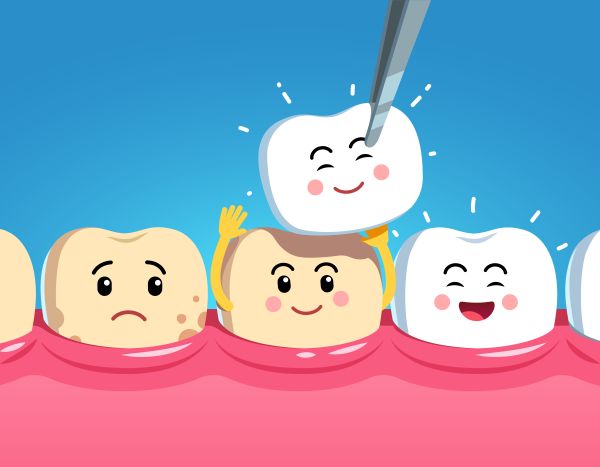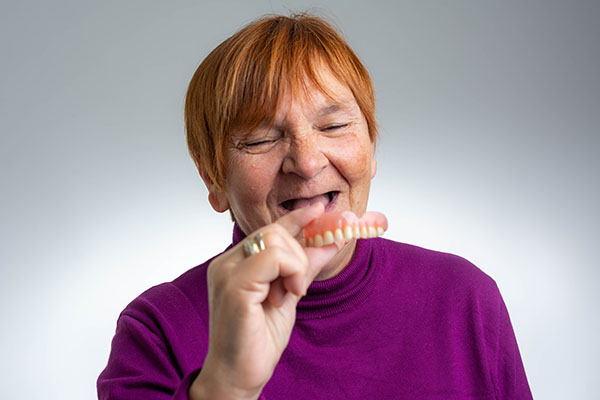Choose Dental Veneers to Fix Crooked Teeth

Dental veneers are considered to be a great way to fix crooked teeth. Everyone knows the importance of a nice smile — not only is it a tell-tale sign of good oral hygiene, but it also helps make a great lasting first impression. If you do not have the time or dedication to wear braces, dental veneers are a great alternative.
Why wait years to transform crooked teeth into straight teeth with traditional braces when veneers can provide the same result in months? Straighter, healthier-looking teeth are more than achievable through dental veneers.
What are dental veneers?
Veneers are essentially a thin piece of porcelain that provides additional strength to your natural tooth enamel. They are carefully crafted to also emulate the natural look of a tooth. Veneers are almost always custom-made through a specific mold of the patient’s mouth to ensure that bonding is extremely easy and comfortable for both patient and doctor.
Veneers are considered a less intrusive method of restoration when compared to crowns or braces. They can be great for fixing small misalignments such as closing gaps, or correcting any sort of discoloration or fracture.
Dental veneer materials
Porcelain is the main material used for veneers, although composite resin is another popular material used. Porcelain veneers are the most preferable when it comes to correcting any shaping or color issues. They are also known for their toughness and durability — easily lasting over 10 years when correctly cared for.
Composite veneers last for approximately five to seven years as well and are a bit cheaper than porcelain veneers. Composite veneers are generally used when smaller changes are needed. Examples include minor misalignments or slight chipping or discoloration of the natural teeth. Porcelain veneers are usually the go-to when it comes to a complete smile makeover due to the material outlasting composite resin.
How dental veneers are installed
Due to their less-intrusive nature, veneers generally take anywhere from one to three appointments. The first is generally a light consultation followed by taking a mold of the mouth. The final visit is typically for the procedure itself.
The great thing about veneers is that there will be no need for constant dental visits as with braces. As long as you are careful and maintain your new teeth properly, you should only have to consult a dentist about your veneers if they are becoming loose or irritating. Your veneers can also be maintained by regular dental checkups, as well.
Before you jump into getting veneers, there are some things you should know beforehand. Your teeth and gums have to be healthy before the procedure. Since they are permanent and will be your new set of teeth, any previous decay or signs of disease must be treated before the procedure. If you constantly grind and clench your teeth, this may cause veneers to chip and break. However, this may be easily fixed with a mouthguard.
The bottom line
As with all dental procedures, you should discuss all your expectations and treatment options with a professional before committing to any permanent solution.
Your teeth play an extremely important role in your life. Talk to your dentist about fixing crooked teeth with veneers as soon as possible — it can be the difference between a good smile, and an amazing smile.
Request an appointment here: https://www.roderickgarciadmd.com or call Roderick A. Garcia, DMD PC at (505) 634-5029 for an appointment in our Albuquerque office.
Check out what others are saying about our dental services on Yelp: Dental Veneers and Dental Laminates.
Recent Posts
Adjusting to new dentures is a process that usually takes several weeks. You must learn how to eat, speak, and adapt to the feel of having them in your mouth. Though every effort is made to have your dentures fit correctly when they are made, you are likely to need to visit your dentist for…
Adjusting to new dentures can involve several changes to a person's routine. One thing that should stay the same, however, is regular dentist appointments. Here is what a new patient needs to know about the importance of dentist appointments and how often he or she needs to visit the dentist after receiving dentures.One commonly asked…
In addition to recognizing the new person in the mirror, adjusting to new dentures requires changing some of a person’s former eating habits. Having a full set of great-looking teeth can give one’s confidence a significant boost, but after spending a considerable amount of time without teeth, it can take a little while to learn…
When there is an aesthetic issue with one of your teeth, dental bonding may be an effective treatment option. Common problems addressed by bonding include broken teeth, severely discolored teeth, or teeth that are slightly off in shape or size. Since they are not as durable as other restorative treatments, bonding is usually used for…


